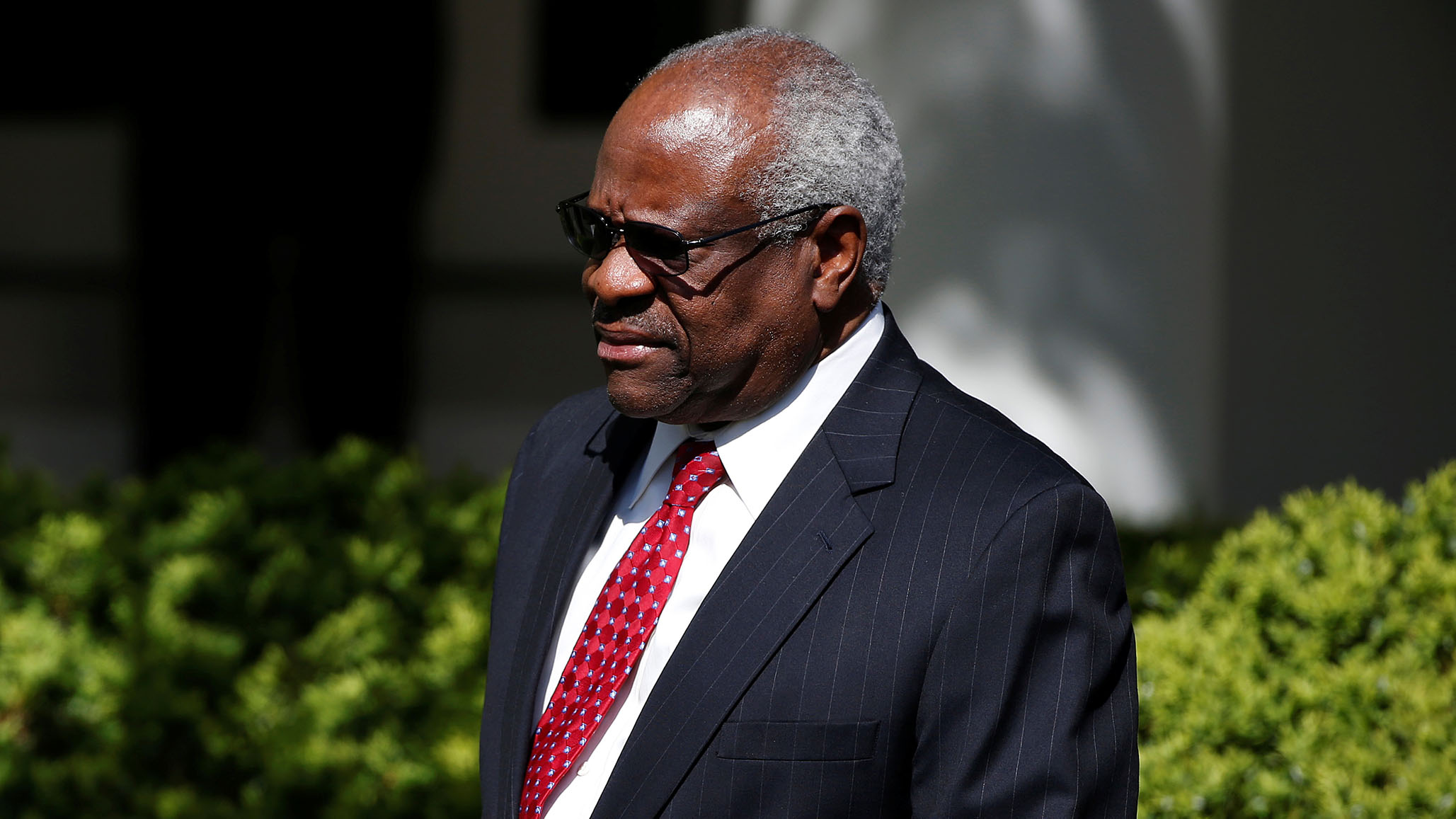


On Wednesday, Democrats in control of the Senate Judiciary Committee convened a subcommittee hearing billed as an effort to ensure “an impartial judiciary.” In sum, it amounted to a publicity campaign for legislation sponsored by Senator Sheldon Whitehouse, the Supreme Court Ethics, Recusal and Transparency (SCERT) Act, which evades constitutional proscriptions on bills of attainder only via careful legislative language.
In essence, the bill is a Democrat-sponsored effort to target, anathematize, and neuter Justice Clarence Thomas. It is, therefore, understandable that Republicans on this committee boycotted the hearing Whitehouse chaired. But by failing to appear, the GOP surrendered the hearing to Democrats, who spent the next 75 minutes issuing denunciations of Justice Thomas and berating the only conservative legal mind in attendance without intermission.
Whitehouse opened the hearing with a leading question: “What did Justice Thomas know about his wife’s insurrection activities and when did he know it?” He alleged that Thomas has “refused to recuse” himself from cases relating to January 6 despite what he maintained are the justice’s conflicts of interest, though the evidence to support that accusation was limited to innuendo and inference. That uncertainty didn’t stop Whitehouse from issuing a flurry of attacks on Thomas’s acquaintances: the “right-wing operative Leonard Leo,” “billionaire megadonor Harlan Crow,” and the “front groups” with whom he associates who have “implicated” the justice in ill-defined indiscretions by filing amicus briefs before the court “without links disclosed.”
The committee proceeded to question — sharply and, at times, accusatorially — law professor Jennifer Mascott, the co-executive director of the C. Boyden Gray Center for the Study of the Administrative State at George Mason University’s Antonin Scalia Law School. She alone raised objections to SCERT on constitutional grounds. Her concerns about the merits of the legislation were based on the separation of powers.
Can Congress empower the public and lower courts to adjudicate decisions by Supreme Court justices? Is Congress not sufficiently empowered to remedy allegations of the misconduct of justices by the power of impeachment? How can this body attempt to violate the separation of powers, Mascott asked, over what its Democratic members insist are allegations of corruption (which consist entirely, in Vermont senator Peter Welch’s words, of “having been the beneficiary of very expensive travel arrangements”), “when we don’t have evidence of wrongdoing, and we don’t have reasons to believe that the process is actually not working?”
To this assertion, Welch became theatrically confused. “Are you serious?” he asked Mascott. “What are you talking about? We should be impeaching judges?” Indeed. If Congress is convinced that Justice Thomas has rendered compromised verdicts owing to his receipt of emoluments, that is absolutely the proper remedy. Unless, of course, the Democratic Party is only promoting insinuations to undermine Thomas’s credibility.
Mascot rendered this unassailable constitutional argument, from which Welch retreated to more defensible terrain. “I’m of the view that constitutional protections are one thing, norms are another,” he insisted. It would have been nice if Mascott had some support on the dais for her arguments in favor of existing constitutional remedies for what amounts to a Democratic conspiracy theory. While she acquitted herself more than competently (indeed, getting the better of many of her interlocutors), there’s only so much you can achieve in a one-sided venue dominated by one party.
This hearing was tough to watch, which is perhaps why Republicans elected not to watch it. But their role as representatives isn’t to cede the field to make a moral argument, which is, by virtue of their absence, subject to interpretation. It’s to represent the interests of their constituents. Republican interests were not adequately seen to in this forum.
